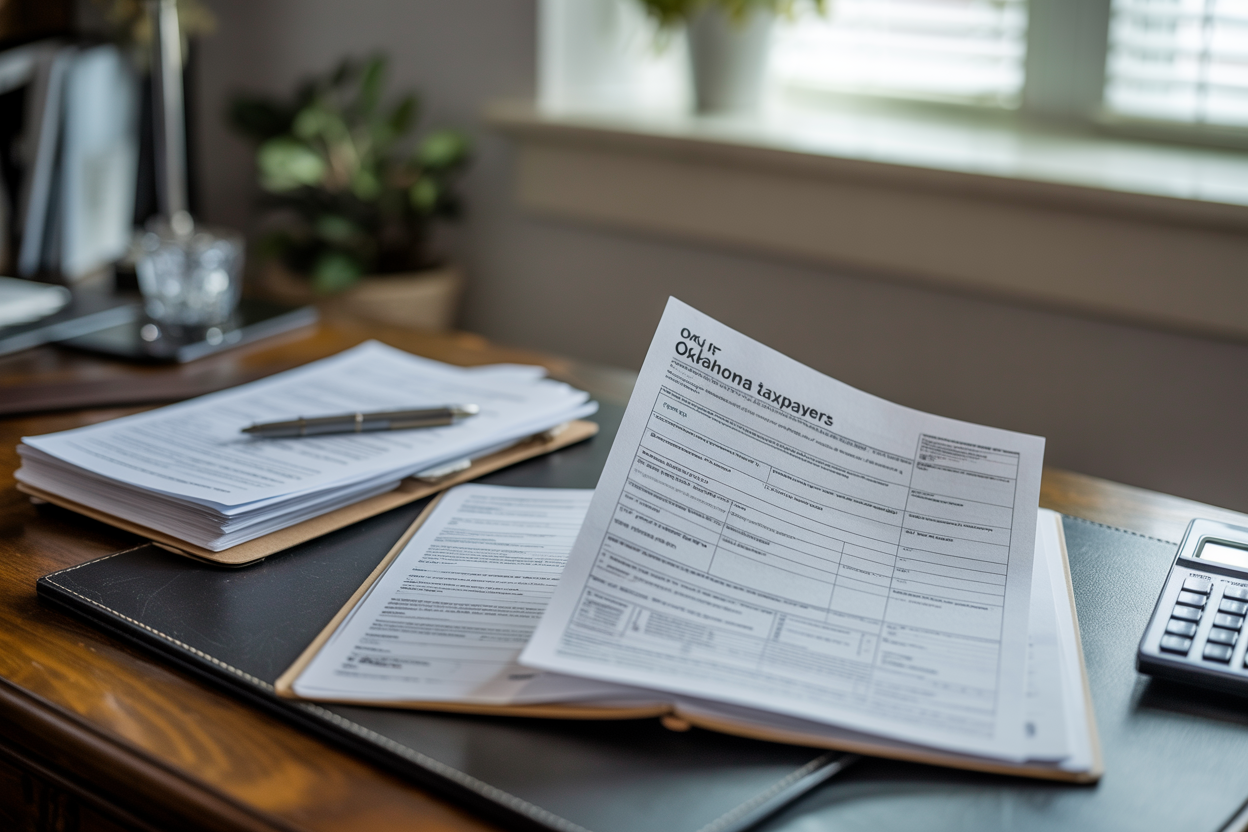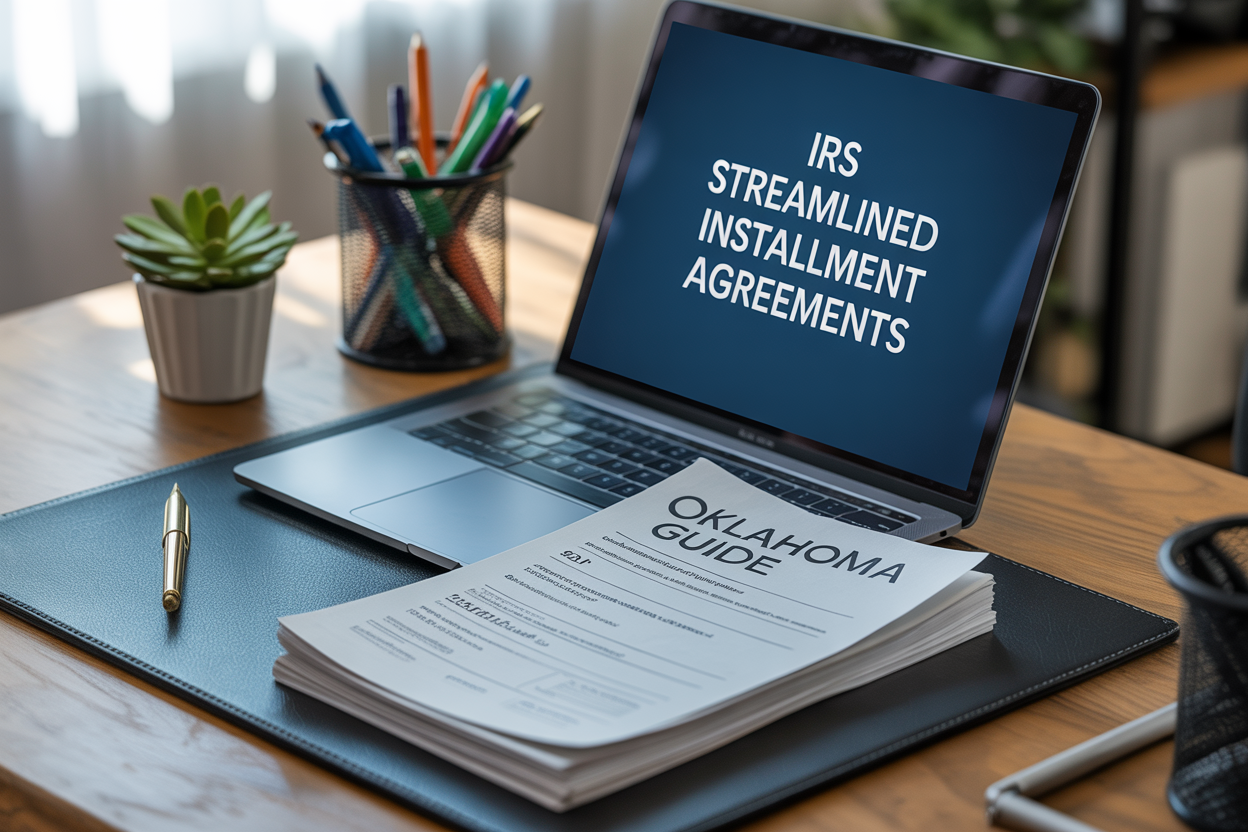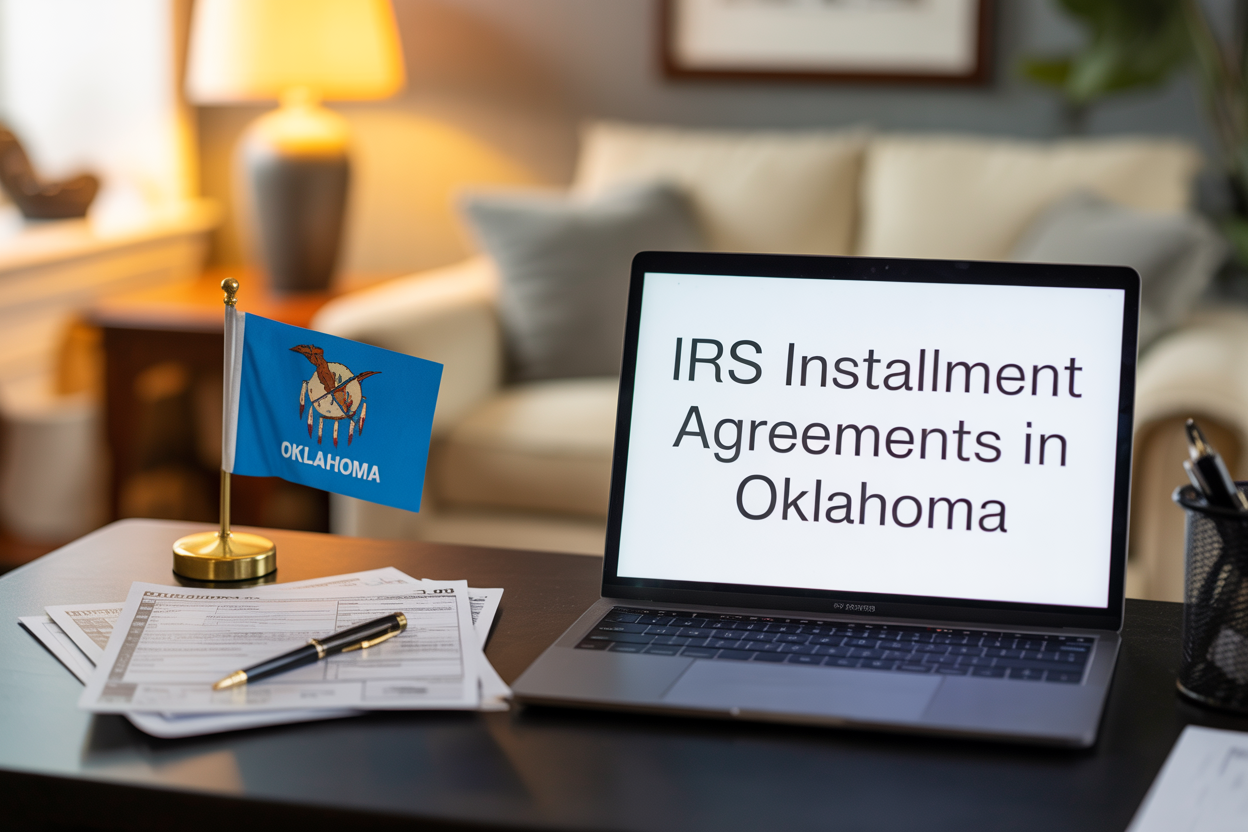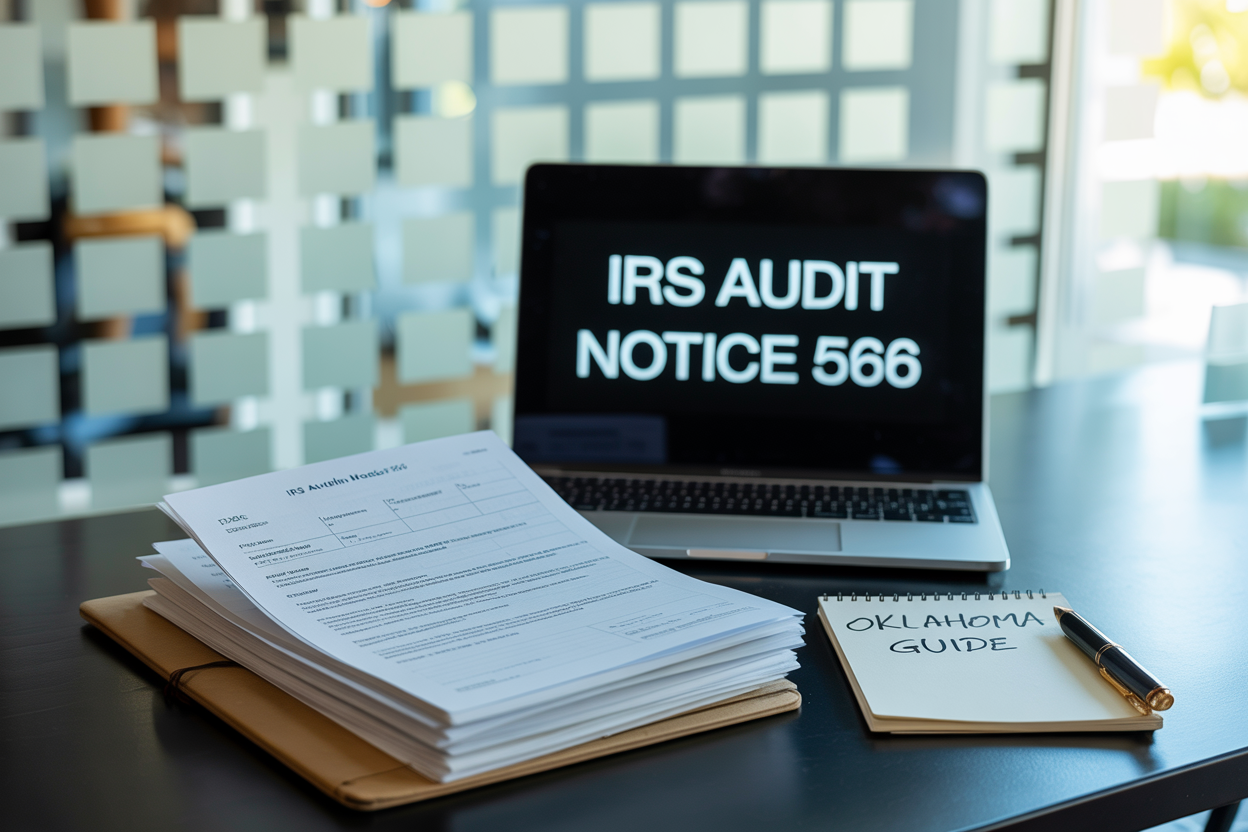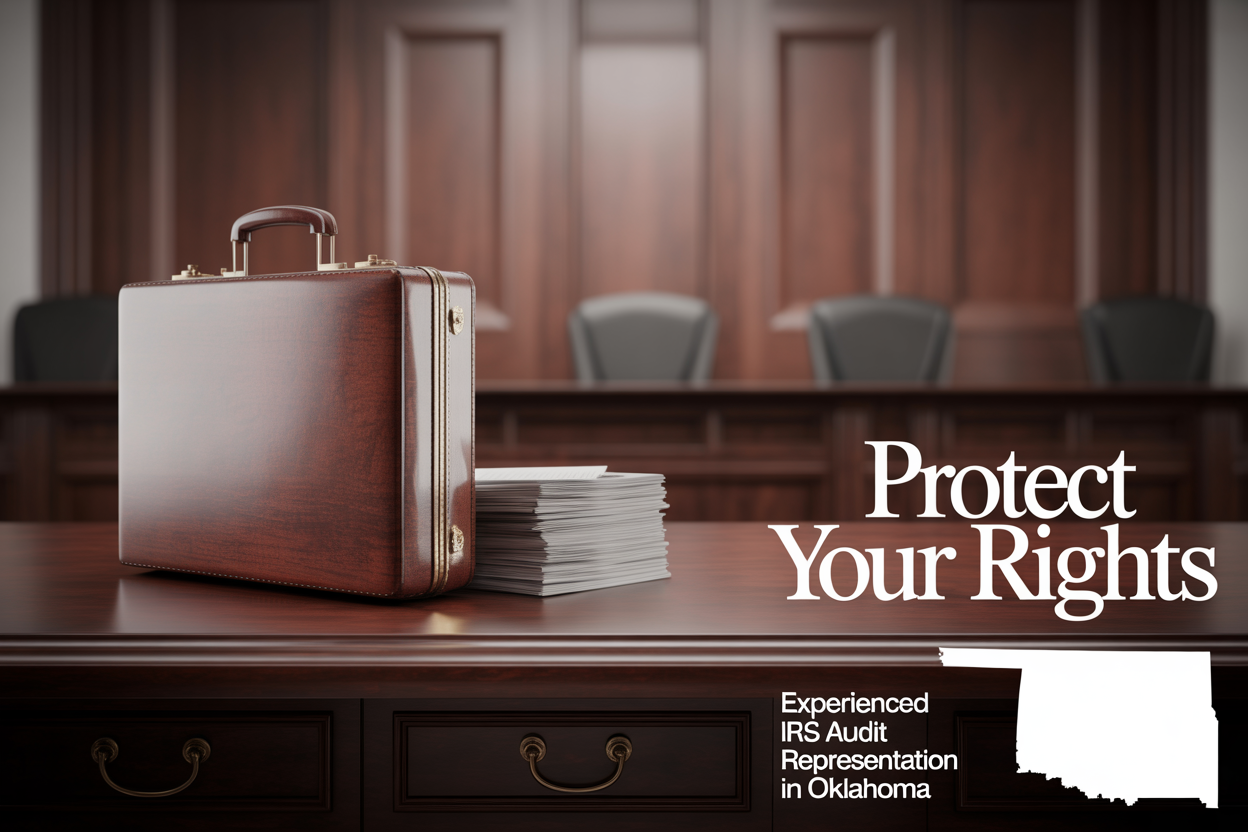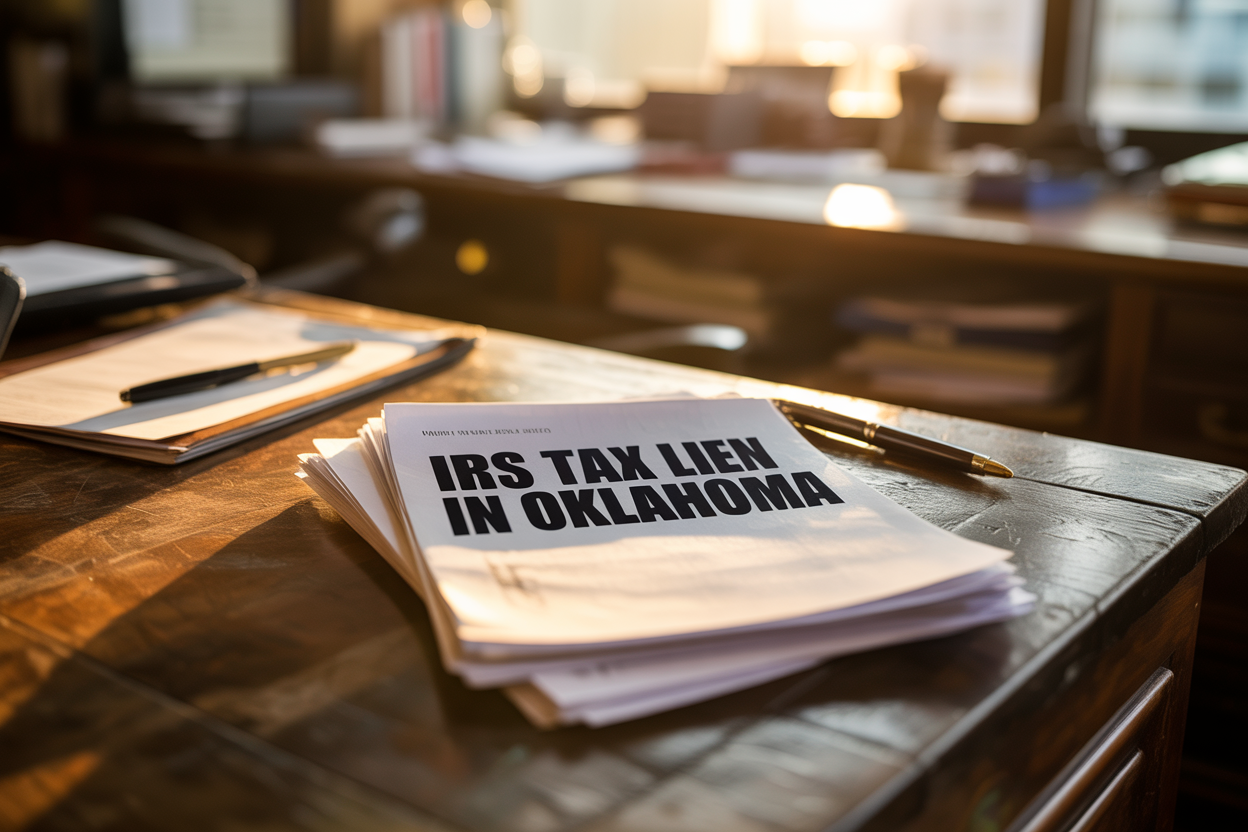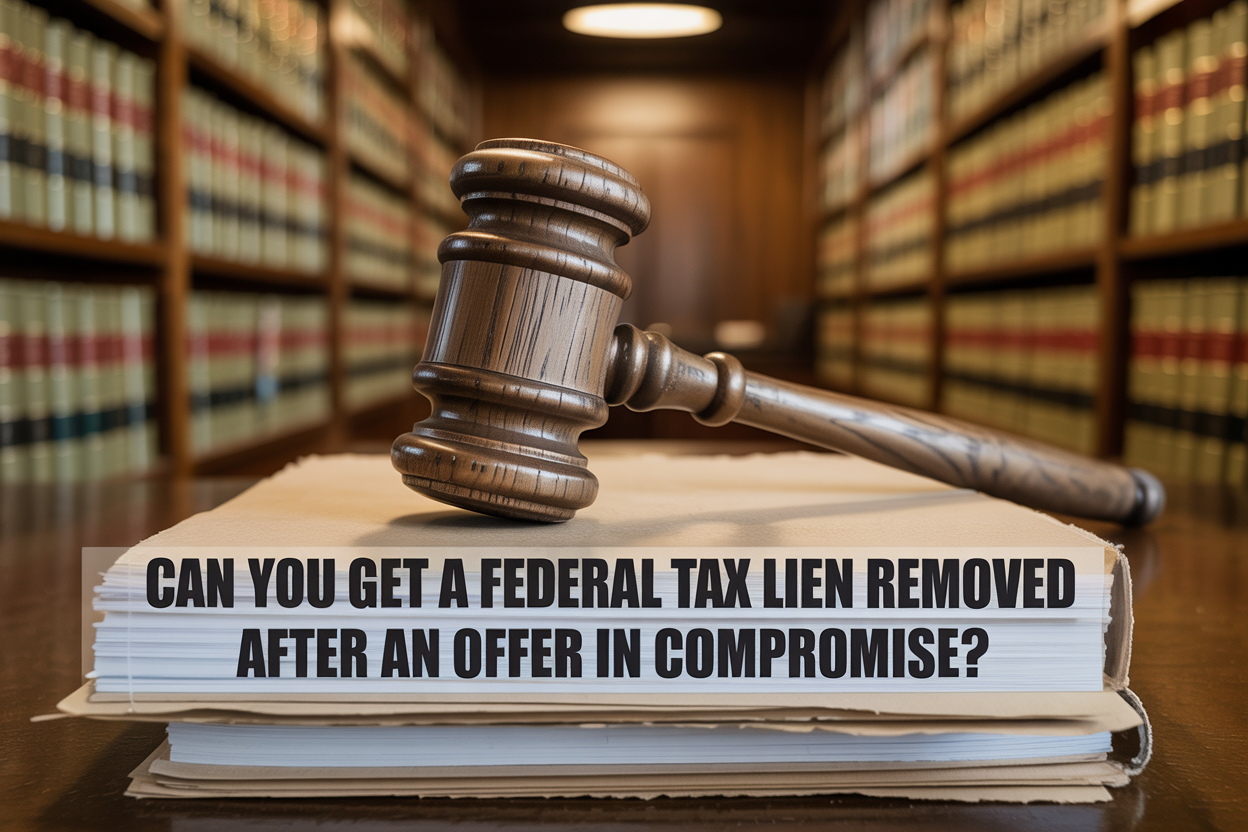IRS Wage Garnishment in Oklahoma City – What It Is, and How to Stop It Fast
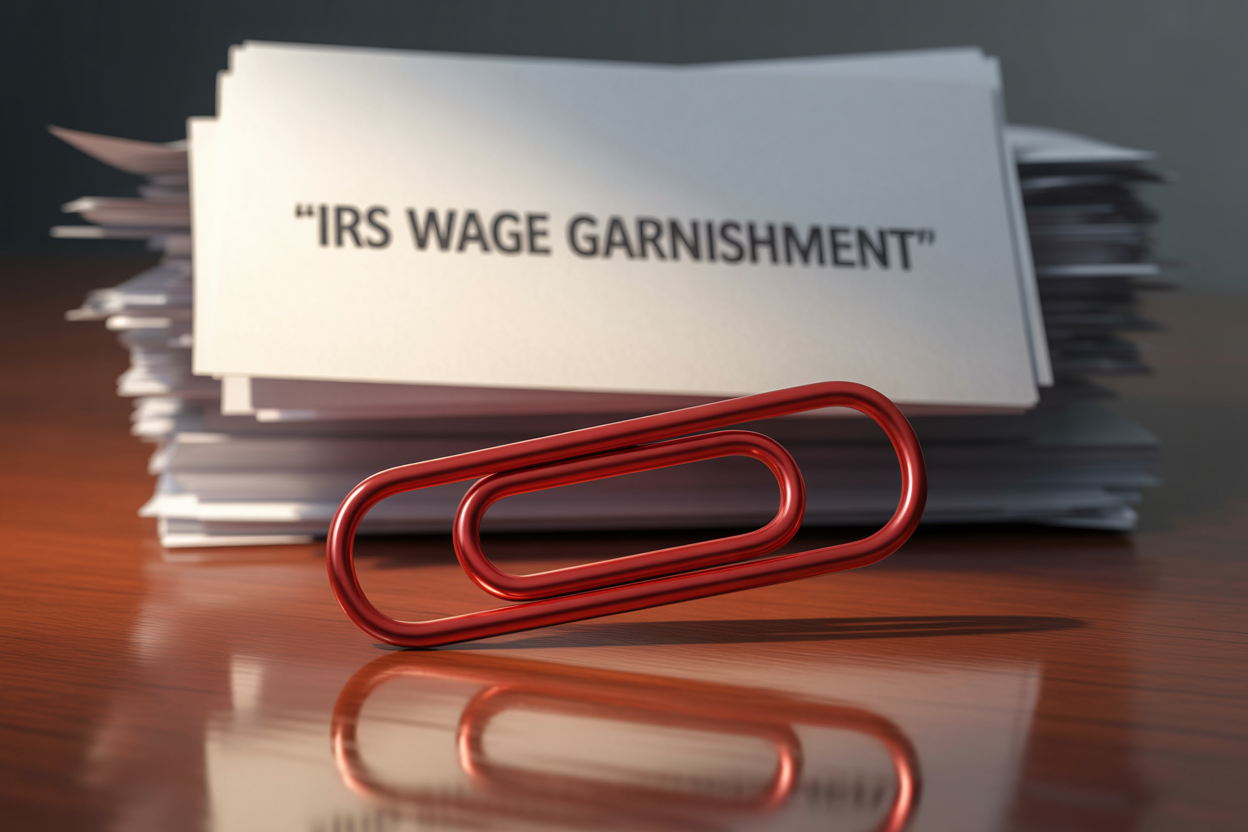
Few IRS actions are more disruptive — or more anxiety-inducing — than wage garnishment.
You check your paycheck… and it’s missing hundreds of dollars. You call your payroll department… and they say the IRS is taking part of your check.
It’s already happening — and it won’t stop until the full tax debt is paid.
But here’s the truth:
IRS wage garnishment can be stopped — often in as little as 24 to 48 hours — if you take the right steps.
This guide explains how IRS wage garnishment works, how much they can legally take from your Oklahoma paycheck, and what you can do — with help from a local, licensed CPA — to stop it quickly and resolve your tax debt for good.
What Is IRS Wage Garnishment?
Wage garnishment is when the IRS forces your employer to withhold a portion of your wages and send it directly to the government.
This happens when:
- You owe back taxes to the IRS
- You’ve received IRS collection letters and haven’t responded
- You ignored the Final Notice of Intent to Levy (IRS Letter 1058 or LT11)
Unlike other creditors, the IRS doesn’t need a court order. Once they’ve sent the final notice and waited 30 days, they can garnish your wages without any further warning.
Read More: Here is the difference between IRS wage garnishment and bank levies.
How Much Can the IRS Garnish from Your Paycheck?
The IRS doesn’t take a flat percentage of your income. Instead, they leave you with a small exempt amount based on:
- Your filing status (Single, Married, Head of Household)
- The number of dependents you claim
- How often you're paid (weekly, biweekly, etc.)
Everything above that exemption amount? The IRS can take it.
For example:
A single taxpayer with no dependents might be left with just $260 per week — the rest goes straight to the IRS.
Bonuses, commissions, and overtime are not protected — they can be fully garnished too.
How Long Does IRS Wage Garnishment Last?
IRS wage garnishment doesn’t stop until one of the following happens:
- You pay your full tax debt
- You enter into a formal resolution like:
- Installment Agreement
- Offer in Compromise
- Currently Not Collectible (CNC) status
- You qualify for hardship relief
- You file for bankruptcy (if applicable)
- You request — and are granted — a levy release
At Boulanger CPA, we’ve helped clients in Oklahoma City lift IRS wage garnishments in under 48 hours using proper documentation, legal compliance, and a strategic resolution plan.
Real Oklahoma Case Example (Client Details Changed for Privacy)
Client: Construction industry manager in Moore, OK
- Owed $37,000 to the IRS
- IRS had already started garnishing paychecks
- We filed a same-day IRS Power of Attorney (Form 2848)
- Submitted emergency financial disclosures using IRS Form 433-F
- Proved financial hardship and negotiated a streamlined resolution
- IRS released the garnishment within 36 hours
- Client entered into a $225/month Installment Agreement
What IRS Notices Come Before a Wage Garnishment?
The IRS must send a specific series of notices before garnishing your paycheck:
- CP14 – First bill: “You owe money.”
- CP501 / CP503 – Reminders and warnings
- CP504 – Notice of intent to levy your state tax refund only
- LT11 or Letter 1058 – Final Notice of Intent to Levy
- 30-Day Waiting Period – You have the right to request a Collection Due Process (CDP) hearing during this time
Once the 30-day window closes, the IRS can begin garnishing your wages at any time.
How to Stop an IRS Wage Garnishment in Oklahoma
There are several legal ways to stop a wage garnishment. The best path depends on how far along the process is — and how fast you act.
1. File a CDP Hearing Request (Form 12153)
If you're still within 30 days of receiving Letter 1058 or LT11, you can file
Form 12153.
This immediately stops all collection activity and triggers a legal hearing process.
2. Submit Financial Disclosure (Form 433-F or 433-A)
You’ll need to show the IRS your full financial picture — income, expenses, assets, and liabilities — to prove hardship or negotiate an affordable resolution.
3. Request a Levy Release
If garnishment has already started, we can still request a levy release if:
- You can show it creates financial hardship
- You are actively working with a CPA to resolve the debt
- We present a good-faith resolution strategy
4. Negotiate a Resolution
Depending on your situation, we may propose:
- A monthly Installment Agreement
- An Offer in Compromise (if you qualify)
- A CNC (hardship) classification — which stops all collections
Read More: See our guide on IRS payroll tax enforcement in Oklahoma
Why Work With a Local CPA in Oklahoma City?
At Boulanger CPA and Consulting PC, we offer something the big national tax mills don’t:
✅
Licensed CPA representation
✅
Local understanding of Oklahoma clients and payroll systems
✅
Direct access to your tax professional — no call center runaround
✅
Clear, flat-rate pricing for IRS representation and resolution services
✅
Same-day Power of Attorney filing and IRS contact
We don’t dabble in tax resolution. We live and breathe it — and we’re based right here in Oklahoma City.
Call Now – Stop IRS Garnishment Today
If the IRS is taking your paycheck, don’t wait.
We can help stop the garnishment — and put you back in control.
Learn what happens when you owe OTC back taxes.
🧠 FAQ – IRS Wage Garnishment
Can the IRS take my paycheck without warning?
No — they must send a Final Notice of Intent to Levy and wait 30 days before garnishing your wages.
I’m self-employed — can they still garnish me?
Not directly — but the IRS can levy your bank account or issue levies to your clients using Form 668-W.
Can a CPA actually stop garnishment?
Yes. A licensed CPA can file emergency representation forms, submit financial disclosures, and negotiate a release — often within 1–2 business days.
What if I already defaulted on a payment plan?
You're not out of options. We may still be able to get you reinstated, restructured, or qualify you for hardship or settlement.
✍️ About the Author
Marc Boulanger, CPA, is the founder of
Boulanger CPA and Consulting PC, an Oklahoma-licensed accounting firm specializing in
IRS representation and tax resolution services.
He is the author of Oklahoma Taxpayers' Guide: Taking a Stand Against the IRS and a member of the American Society of Tax Problem Solvers (ASTPS).
Marc has helped hundreds of Oklahoma business owners and individuals resolve six-figure tax debts, stop garnishments, and regain peace of mind — without going broke in the process.
📍 Based in Oklahoma City | 📞 (405) 384-4900 | 🌐 www.oklahomacity.cpa

